Renting with a cat, as a devoted feline enthusiast, can often leave you scratching your head. Why doesn't everyone cherish your whiskered companion as you do?
Especially when seeking that perfect pet-friendly apartment, you might find many landlords opting for a straightforward 'no pets' policy.

Yet, not all hope is extinguished. Some landlords recognize the nuances between different pets. To win them over, presenting your cat as well-behaved, neat, and pest-free is paramount.
A comprehensive pet résumé might just be the key, spotlighting everything from your cat's breed to its medical history.
But the journey doesn't end there once you've secured that dream space. It's only the beginning.
Keep reading to find the perfect balance between a happy cat and a satisfied landlord.
What is a Pet-friendly Apartment?
Cats are naturally a territorial species, so living in an apartment will restrict their access to the outside world if there’s no immediate garden to explore.
This can be somewhat of a challenge, but armed with the right cat equipment and knowledge, you can successfully make your apartment a pet-friendly space for them to live in.
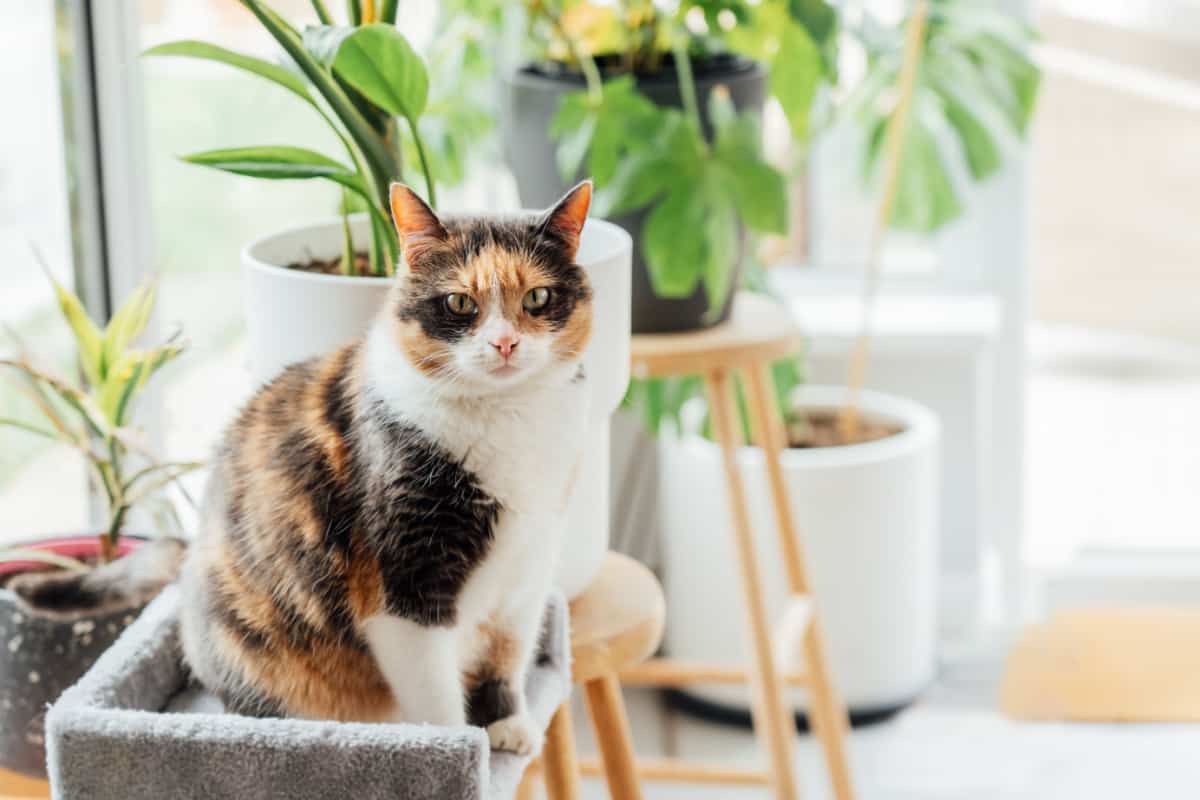
You can transform a living space into a pet-friendly apartment to keep your cat comfy and occupied so it doesn’t tear up the furniture or make a nuisance to your neighbors.
Now, let's explore specific actions to meet your cat's needs and simultaneously satisfy your landlord.
SIGN UP FOR THECATSITE'S EMAIL UPDATES >
How Many Cats Am I Allowed?
Check that your chosen apartment permits pets. Know the allowed pet limit and stick to it, remembering to include any fostered and rescued animals in your count.
Choose a spacious apartment for your pets. Just as humans value solitude, cats do too. A general guideline suggests one cat per room.
So, in a one-bedroom apartment with a separate living area, two cats can live comfortably.
Why Landlords Prefer Spayed/Neutered Cats
Even if your landlord seems open to you renting with a cat, they will likely inquire about its spaying or neutering status.

Unspayed female cats can yowl when in heat and risk birthing kittens. Unneutered male cats might roam, fight with neighborhood cats, and mark territory with urine.
Spaying or neutering your cat typically doesn't change its personality or activity level.
Moreover, this procedure can enhance your appeal as a tenant. It's a cost-effective measure that ensures your cat's long-term happiness and health.
Make Sure Your Cat Isn't Bored
Cats do like to spend a lot of time sleeping, but they still need stimulation and entertainment in the form of toys and games. As their owner, it’s up to you to find ways to make your apartment more fun for a cat.
Consider setting up a freestanding climbing wall for your cat's exercise.
Create cozy hideaways using baskets and blankets, and provide toys such as catnip mice or interactive feeders. When you're away, play soothing music to comfort them.
Click here to see this interactive feeder on Amazon.
It’s a good idea to do this because a bored cat can get into a lot of mischief when you’re not at home, including scratching walls and door frames, climbing blinds, and attacking furniture with gusto.
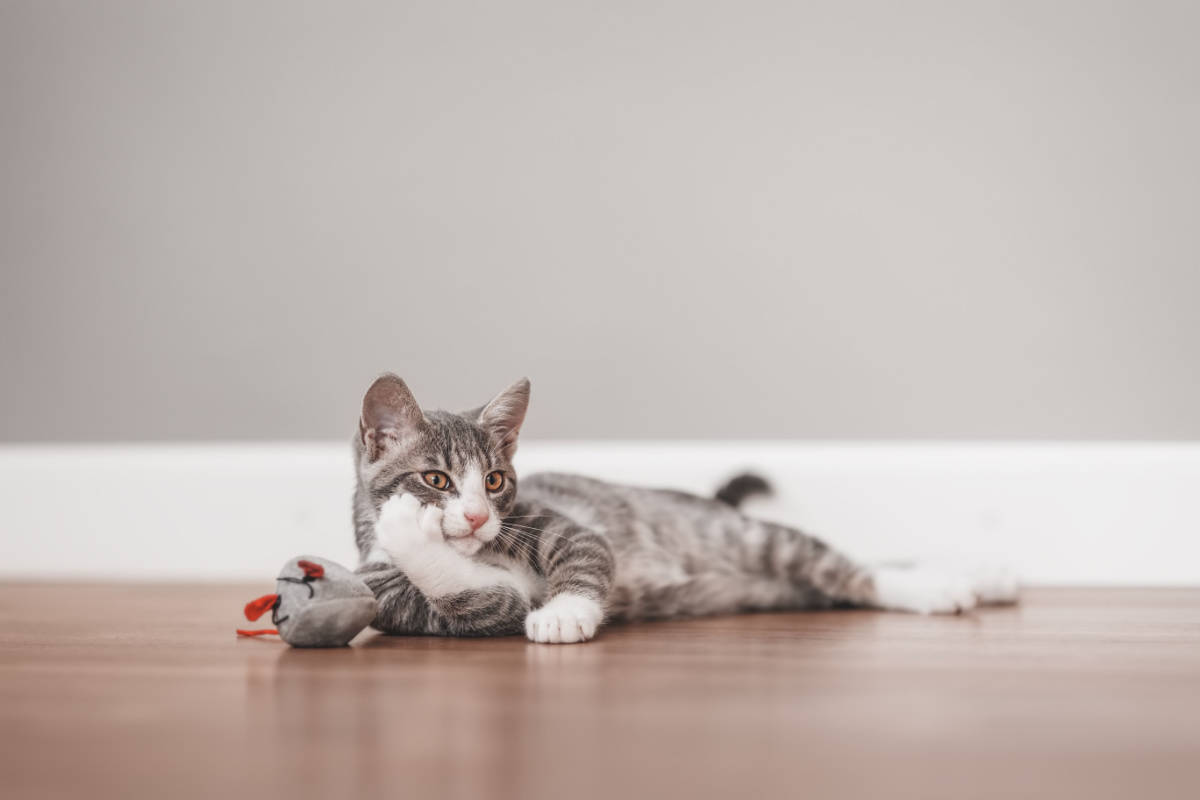
Landlords feel at ease knowing your cat behaves well and stays occupied while you're at work.
This assurance becomes especially vital when you're renting a fully furnished apartment with a cat.
You still may have to pay a slightly higher rental deposit if you have a cat to insure against mishaps, but hopefully your landlord won’t need to use it!
Make Sure You Keep Their Litter Box Clean
When renting with a cat, managing the litter box situation is paramount. Every cat, whether an all-day indoor dweller or a dusk-to-dawn explorer, needs a reliable litter box.
The lingering scent of an unkempt box can lead to landlord grievances, especially during property inspections.
For a fresh-smelling home, adopt a routine: clear out waste and urine-soaked litter daily.
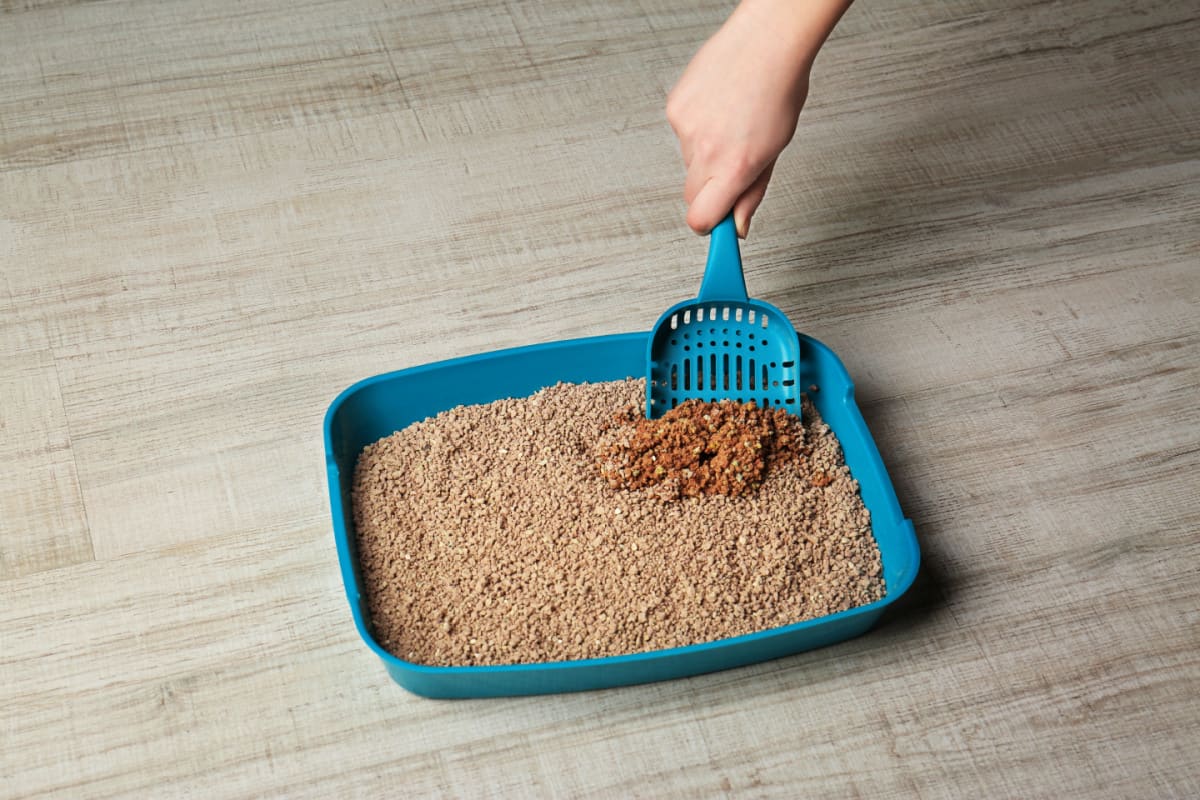
If this sounds tedious, think about investing in an automatic litter box, which simplifies maintenance.
On a weekly basis, give the box a thorough wash using hot water and a cat-friendly detergent. Be cautious with disinfectants; products like Dettol can be toxic to felines.
When selecting litter, keep your cat's preferences in mind. While the idea of deodorized litters is tempting, many cats turn their noses up at them.
Instead, explore biodegradable options known for their odor-neutralizing prowess. The box's size and placement matter too.
Click here to see this litter box on Amazon.
Opt for a spacious one, ideally measuring at least one and a half times your cat's length. And as for location, keep it distanced from food areas and busy spots in your home.
Remember, each cat in your household ideally requires its own box.
Scratching Posts and Sticky Tape Are A Must!
Cats naturally scratch to express themselves, whether it's for play, claw maintenance, tendon strengthening, territory marking, or warning signals.
While you can't prevent a cat from scratching, this behavior might damage door frames, furniture, curtains, and carpets.
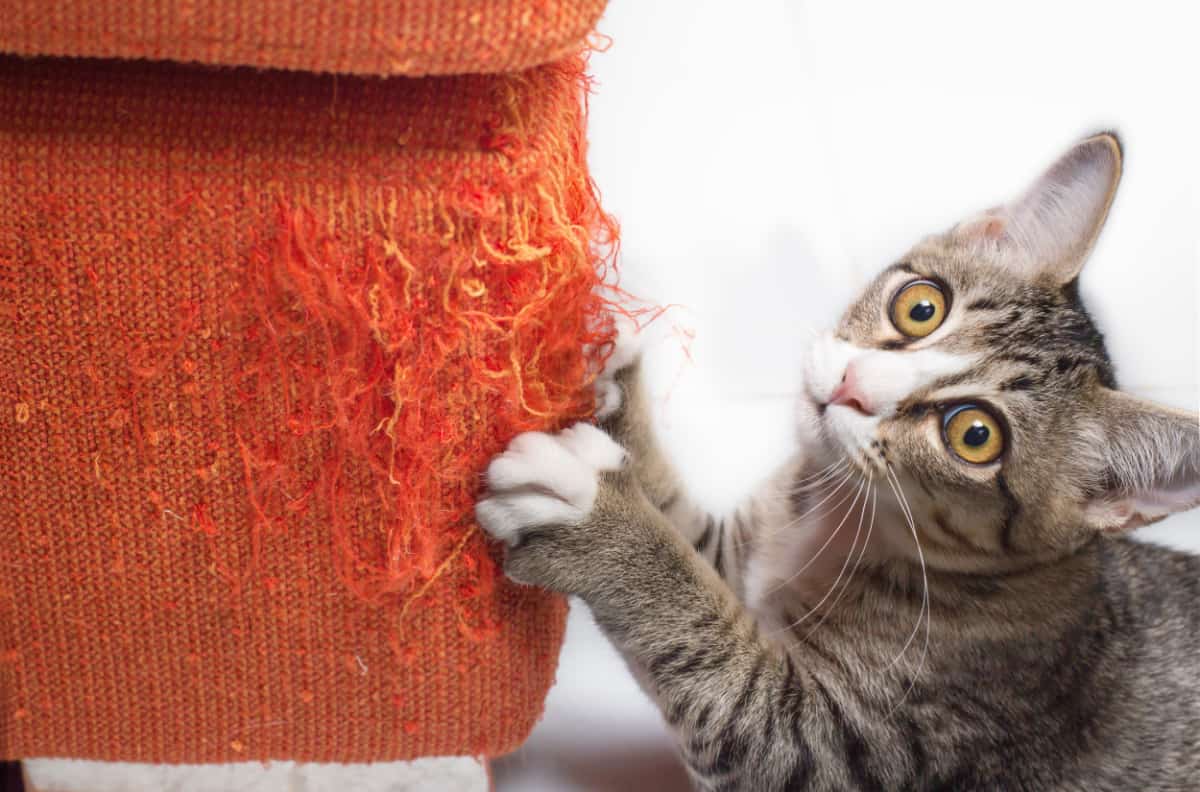
Landlords, especially those renting fully furnished apartments, often worry about such potential damage. To redirect your cat's scratching, introduce designated scratching areas.
If your cat frequently targets curtains, set up a sturdy vertical scratching post nearby and lure them with catnip-scented toys.
For those renting and facing challenges with cats scratching furniture, consider double-sided sticky tapes like Sticky Paws.
Click here to see this one piece Sticky Paws on Amazon.
These tapes deter cats without damaging the furniture and are easily removable.
Remember, finding the right scratching post might require experimentation, as cats, like humans, have individual preferences.
Keeping Your Apartment Clean
Cats make ideal pets for renting an apartment due to their impeccable personal hygiene habits. Unlike dogs that need regular baths, cats dedicate 15-20% of their time to self-grooming.
While landlords shouldn't have hygiene concerns, they might worry about cats shedding fur on carpets and furniture.
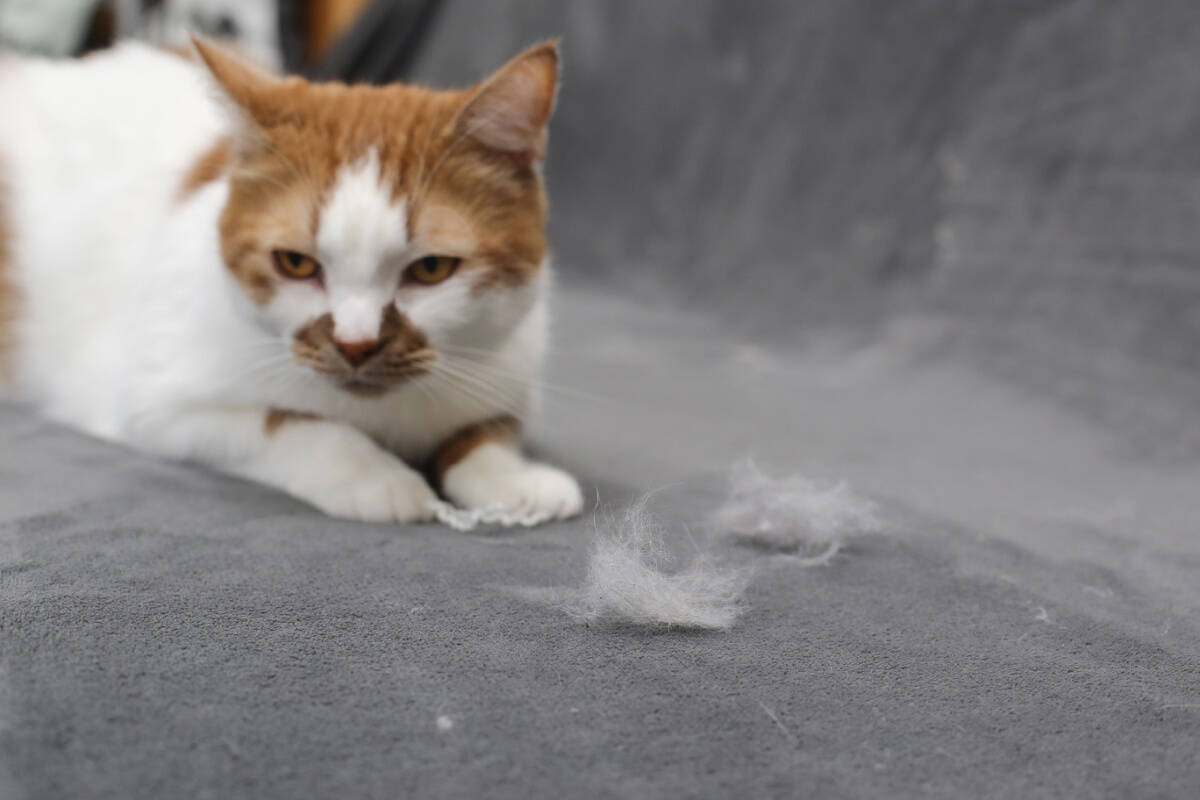
Depending on breed and season, cats can shed significantly. Although shedding is natural, it often feels like an endless task to clean up the fur.
Some renters prefer carpeted floors as they can easily vacuum up the fur, while others opt for hard floors, using disposable cloths to gather fur tumbleweeds.
Regardless of your flooring choice, renting with a cat means more frequent sweeping or vacuuming.
A consistent grooming routine using specialized brushes or combs not only reduces shed fur but also becomes an activity most cats enjoy.
Click here to see this cat brush on Amazon.
Prevent and Treat Fleas Early to Avoid Infestation
Your landlord's concern about fleas, even if your cat has never had them, is valid. Contrary to popular belief, even indoor cats can contract fleas brought in by people.

Fleas can hitch a ride on clothing, and once inside, they can infest your cat and lay eggs. Within 3 to 10 days, you could have a flea problem.
Regular checks for signs of fleas on your cat and bedding, like the black pepper-like flea dirt, are essential.
Routine vacuuming and washing can help, but if an infestation occurs, consult your vet. They'll likely recommend treatments that kill and prevent fleas.
Click here to see this flea treatment on Amazon.
Remember, treating a flea problem and any related fumigation costs fall on you, not the landlord.
Make Sure Windows and Doors Are Safe
Cats like to explore, so even the slightest gap in a window or door is likely to tempt a curious cat to squeeze through it.
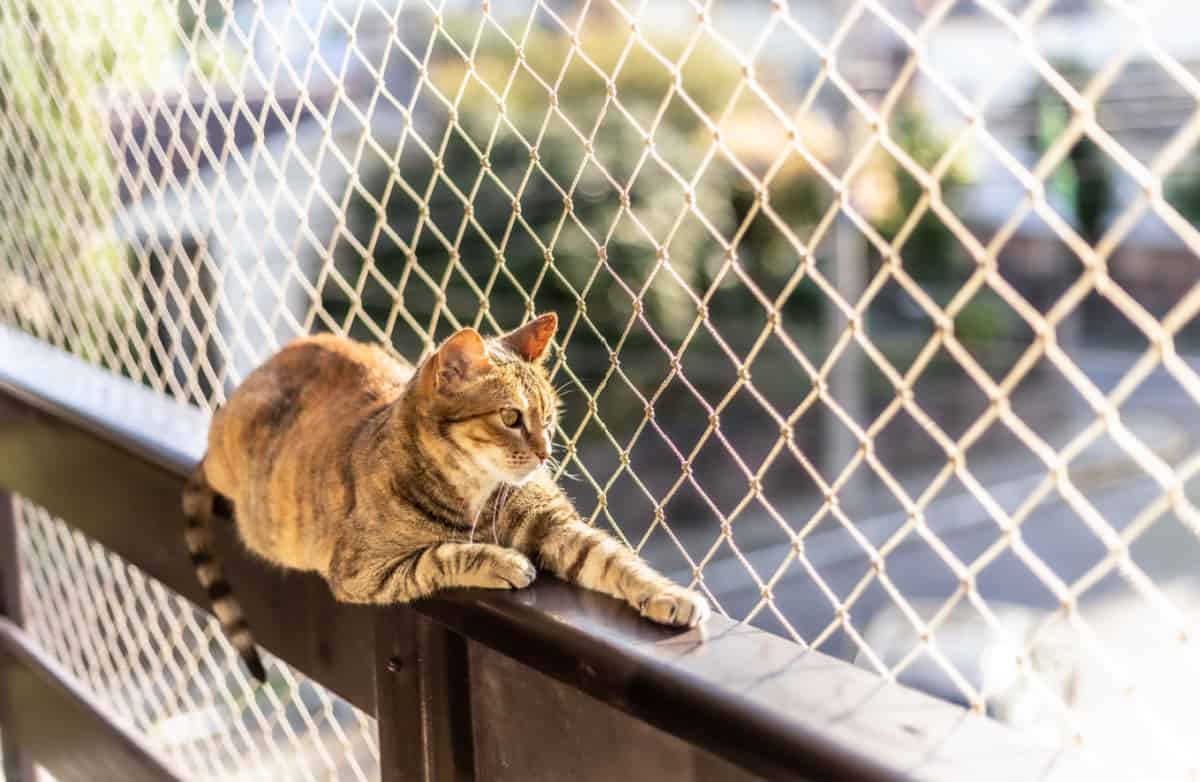
A friend once looked after a large, fluffy cat and left the window in her bedroom open a minuscule amount, thinking that there was no way he would get through the gap.
But amazingly he did, and the cat was most put out when he was discovered sitting on the lawn under a tree, and was hastily taken back inside.
The lesson here is to keep the window shut at all times to make sure your cat can’t squeeze out! It’s also for their own safety so they don’t injure themselves falling from a high window ledge.
If you want to have fresh air then install a cat-proof window screen so they can happily sit inside on the window sill and be safe.
Click here to see this cat-proof screen on Amazon.
There are lots of options for pet screens on the market if your landlord is sympathetic to your cat's needs and is ok with you installing a cat-proof window screen.
Final Thoughts on Renting with a Feline Friend
Renting with a cat demands attention and commitment. Yet, with the right steps and understanding, a harmonious environment for both your feline friend and landlord is attainable. Embrace the learning, and ensure a happy home for everyone involved.
SIGN UP FOR THECATSITE'S EMAIL UPDATES >
Share the insights with others by posting any of the images below on your social platforms, particularly on Pinterest.


Read more on:
How To Move With Your Cat To A New Home In A Safe Way
The Health Benefits Of Living With A Cat
Note: We may get commissions for purchases made through links on this page.










10 comments on “Renting With A Cat? Find Out How To Keep Your Landlord Happy”